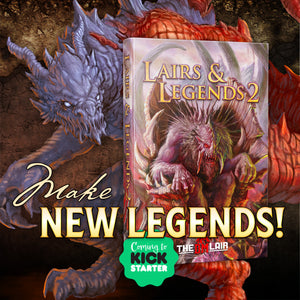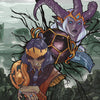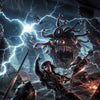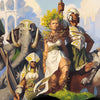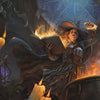10 Signs Your D&D Game Sucks
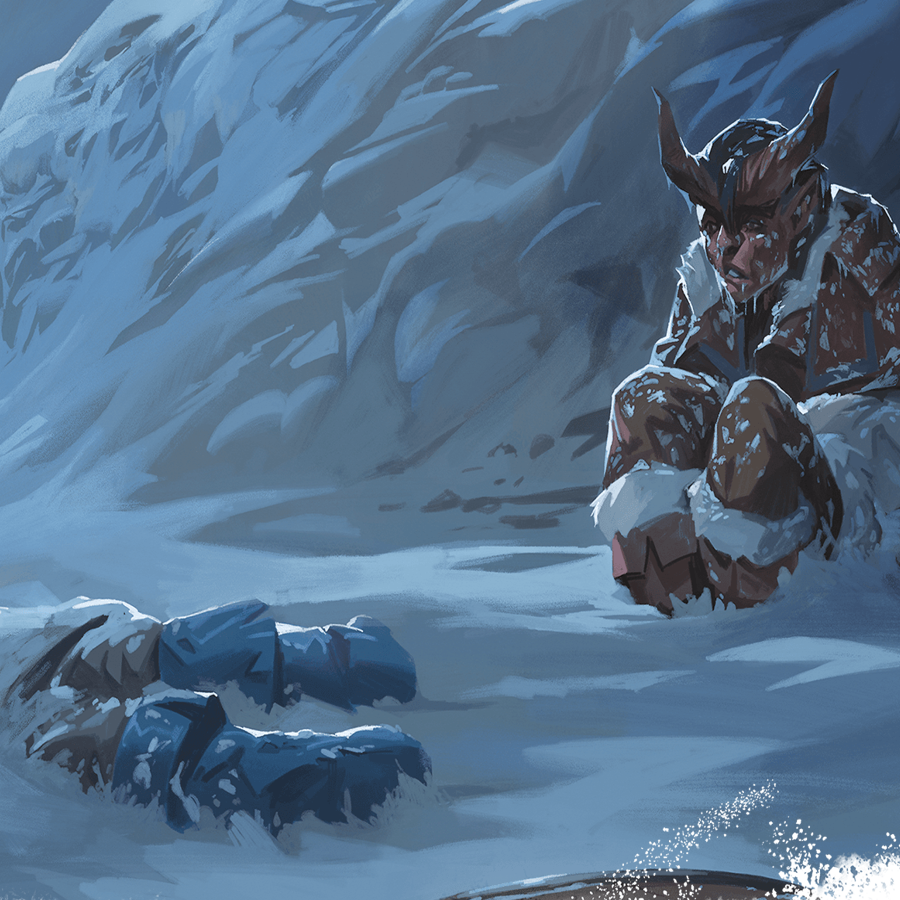
Written by Luke Hart
Are you sometimes worried that your players might not be enjoying your D&D game? Does the thought plague you that perhaps your game isn’t that good, but . . . nobody’s saying anything? If so, it’s OK. I’ve been running games for nearly thirty years and worry about the same thing.
So, today, we’re going through the top ten warning signs that your players may not be enjoying the game. Simply asking your players if they had fun usually doesn’t work because most people will say “yes” even if they didn’t have fun.
Watch or listen to this article by clicking the video below.
#1 Lack of Engagement
I had this player once who was there. He never really missed game sessions. He always had his butt in the seat, but I could tell that he was on his phone quite a bit during combat. He was super engaged and very excited about it. Still, he would be on his phone if anything else was happening, whether it was an exploration or a social interaction, except for a few—he did enjoy some of the social interaction. There were many parts of the game in which he was just kind of disengaged; he was on his phone doing other things. Eventually, he lost interest and left the game.
Are your players paying attention to the game, listening to you and the other players? Or are their heads buried in their phones? Yes, everyone checks their phone from time to time—this is the 21st century—but if that’s all your players are doing, they might not be enjoying the game so much. Non-game-related conversations are another indicator of flagging interest in the game. Talking briefly about the latest video game release is normal; when that conversation takes up an hour of your four-hour gaming block—that’s probably not normal and indicates your players would rather talk about a game—or whatever else—than play your RPG.
#2 Declining Attendance
If your players constantly miss game sessions or if you have a high turnover rate—meaning a new player joins your game, but they nope out after the first or second session—that usually means they’re not super interested in the game.
“But, Luke! My players are just busy, and things keep coming up. It’s not the game; it’s them.” To that, I say, “Do you not live in our present-day society? How many times when someone—especially a friend—doesn’t want to do something do they straight up tell you, ‘No, I’m sorry, I’m just not interested in that’?” How many times have you gotten out of an invitation by saying you were busy when you weren’t? Or, better yet, how many times have you really wanted to do something and you were busy, but you found a way to make it work anyway? In our ultra-polite society, claiming busyness and giving socially acceptable excuses is how most people get out of engagements they simply don’t enjoy.
Now, it doesn’t mean people are always lying to you, of course. Things do come up from time to time. It’s the frequency that’s the key—frequency. All players will miss games occasionally; when they are constantly missing them, we should stop and consider if it’s because they just aren’t enjoying the game.
#3 Limited Roleplaying
D&D is an RPG, and RPGs are, by definition, role-playing games—that’s in the name. So if players show up but their roleplaying is sparse, there might be a problem in Houston, Dallas, or whatever city or town you happen to live in. I’m not going to list them all, OK?
But hold on right there because since we mentioned roleplaying, it’s time for my obligatory rant. If you read this blog or watch my videos regularly, you probably already know what I’m going to say. Anyway, here it is: Remember, the entire game is roleplaying, not just the talky-talky parts where you speak in character with funny voices and accents. Yes, that is roleplaying, but it’s just one aspect of roleplaying that is best referred to as “social interactions.” Please remember that combat and exploration are the other two fundamental pillars of RPGs, and they are just as much roleplaying as social interaction—the talky-talky bits.
So, if your players are reluctant to engage in roleplaying, they might not be finding the game immersive or compelling. Just remember, not all players like speaking in character, and that particular aspect of roleplaying is 100% optional. That’s why it’s important to remember there is more to roleplaying than just the talky-talky part. If players are engaging in those other aspects of roleplaying, then you’re good.
#4 Lack of Cooperation
This is another huge one I’ve seen in my games that indicates players aren’t enjoying themselves. In fact, this should have probably been number 2 on the list.
If your players frequently do not work together as a team, or they are constantly arguing with each other—or they get into it with you, the game master—well, that’s a good sign they may not be enjoying the game. Look, people who are having fun usually don’t argue and fight with each other. Yes, I understand that doing so could be a sign of engagement, being invested, and really caring, but it could just as equally be a sign they don’t like how the game is panning out.
By the way, this is probably a good time to mention that even if it turns out your roleplaying game isn’t that great, that doesn’t necessarily mean it’s 100% your fault as the game master. There are lots of factors that go into whether someone enjoys a game or not: the other players, the social dynamics, the themes of the campaign, the balance among combat, exploration, and social interactions, and, of course, how the GM runs the game and how good they are as a GM. However, you could have an amazing game master with a player or two who aren’t enjoying the game, which might have nothing to do with the game master. So, players not having fun in your game isn’t necessarily cause to beat yourself up.
#5 No Pre- and Post-Game Discussions
Look, one thing I have noticed over decades of being a game master is that players who are enjoying a game talk about that game. They usually talk about it before the game even begins and almost always after it ends. I often hear my players chatting about something, and it’s usually related to the game. Shoot, many times, these conversations continue out into the driveway and street as we walk back to our cars. My point is this: This pre- and post-game chatter is a sign that your players are having fun and enjoying the game. If this banter is missing, that’s a good sign they may not be enjoying themselves.
#6 Rushing Through Content
You may have heard it said that a slow game is a boring game—and if you haven’t, maybe I just made that up—but it’s definitely sometimes true. However, a game that barrels forward at a break-neck pace and gives you zero time to enjoy the game, the process, and the present—well, then you have a game kind of like Star Wars Episode 9: The Rise of Skywalker. It’s like a rollercoaster rushing down the track, but there is nothing but the brick wall of disappointment at the end. And when you crash into that wall, you realize the only good part about the movie was the popcorn. Unless the butter was rancid because, yes, sometimes even butter is bad.
My point is if your players don’t seem to care about the individual moments of your D&D game and just want to “get ‘er done” as quickly as possible, that could indicate they don’t enjoy the game or the parts they always try to rush through, such as combat, exploration, or social interactions, for instance. Or they might just be unsatisfied with the balance and pacing of your adventures.
#7 Constant Rules Disputes
One of my friends recently told me that he and other players are frequently having extended “discussions” with their game master about the rules. And from what I gather, it’s not rule lawyering at all. Some of the players, my friend included, are simply dissatisfied with the game master’s rulings and their understanding of the rules. So, if you find that your players constantly argue with you about the rules, don’t just blow it off as them being filthy rules lawyers or something. Those arguments could point to something deeper.
But not always—some players just want to argue.
I was running “Prince of the Apocalypse” a while ago, and we had made it through part of the module. Then we were just like, “You know, let’s just not do this anymore; Luke, just homebrew for us again. It’s better that way.” So, we didn’t get through it all. Still, when we were running through it, one player in that game just wanted to argue about the rules. I don’t know if a single game session could go by without him arguing with me about something. Maybe he just didn’t like my interpretation of the rules or something, or maybe he wasn’t having fun in some of these instances. I don’t know. Ultimately, it resulted in him leaving the game. So, arguing about the rules is probably an indicator that something’s wrong, but maybe not always. Who knows?
#8 Lack of Character Development
OK, look. Not every player gets super involved in developing their character. For instance, I throw a character together as quickly as I can. If you’re lucky, I might make a two-paragraph backstory, but I’m mostly just trying to get it done. Now, in my case, I’m used to my characters dying in one or two game sessions—I’m reckless; what can I say? So, I’ve just learned not to get too invested. However, most players I’ve observed in my games are not like that; they’re not like me.
Players, by and large, seem to get really into tweaking their characters. It may or may not mean they go whole hog with their backstories, but they enjoy and take character creation seriously. Many players really get into certain builds or character concepts they are going for. So, if you have players who are not engaged or invested in their characters, it might mean they aren’t enjoying the game itself. This isn’t always the case, of course, as different parts of the game appeal to different people differently, but it could be an indicator of something.
#9 Lack of Initiative
OK, this might actually be the 3rd-greatest indicator that players aren’t enjoying the game, but here it is at number 9. Have you ever seen a group of players just sitting there, staring at the game master, waiting for them to make the first move? The players don’t declare they’d like to do anything. They just sit there and stare at the game master, waiting for the GM to do something, to bring fun and entertainment to their laps or something. Well, that’s not what interested and invested players typically do.
It will happen from time to time, sure, but when your players are mostly just sitting there like lumps and waiting for the GM to practically handhold them through the adventure, prompting them at every step, suggesting things they might try, and the like—your players probably aren’t enjoying the game so much. Unless they are new players, of course. If you have folks completely new to RPGs in general, you have something else entirely on your hands.
#10 Negative Feedback
Yes, thank you, Captain Obvious . . . If your players are giving you negative feedback on your game, they might not be enjoying themselves.
But, hey, we couldn’t have just 9 things on the list; we needed 10, so that’s what you get.
Oh, wait. I do have a better #10!
#10b Observe Your Players During the Game
Are they smiling? Are they laughing? Do they appear to be having fun? Here’s the thing: It’s easy to say you are having fun, but it’s much harder to fake fun at the moment.
So, what do you do then if you think your players aren’t having fun? Step number one is talking with them, having a simple, straight-to-the-point conversation. Basically, you need to find out what elements of the game they are not enjoying. Once you understand that, you can take steps to improve. This might mean that you, the GM, need to improve things, or it might mean addressing other issues that are causing players not to like the game. Remember, it isn’t always the game master’s fault. Many factors at play in an RPG contribute to folks having fun.
It’s Time for New Legends!
Running awesome games with in-depth lore, deadly traps, and terrifying monsters doesn’t have to take hours of prep! Lairs & Legends 2 and Loot & Lore 2 have everything you need to cut your prep time in half while preserving your campaign and story! These two massive tomes are designed to let you plug-and-play encounters, monsters, magic items, brain-burning puzzles and more easily into your game!
Or you’ve just needed that one really cool thing for your game, but it’s just not coming to you?
Both books contain hundreds of pages of 5e game master resources, carefully crafted by a team of expert game masters to be both exciting to run and easy to use. You don’t need to parse through dense paragraphs trying to find something useful; just take a quick glance through it, and you’ll have everything you need at your fingertips.
- Over 30 Adventures
- 30 Stand-Alone Encounters
- More than 100 Monsters
- Traps and Puzzles
- 6 New Rule Sets
- And much more!
-
Posted in
Game Master How-To Articles

